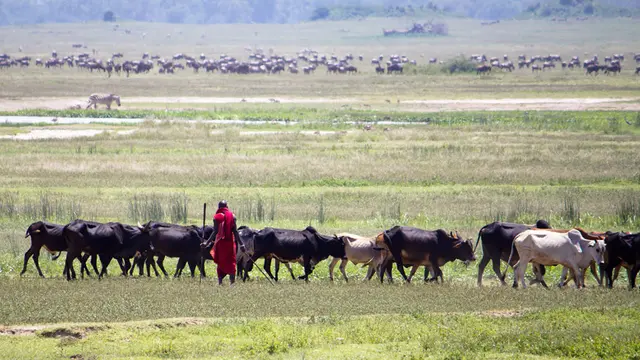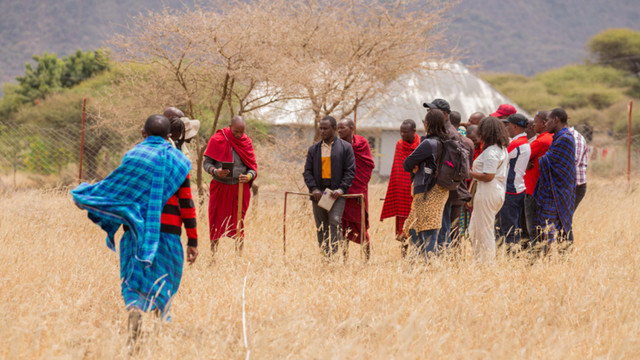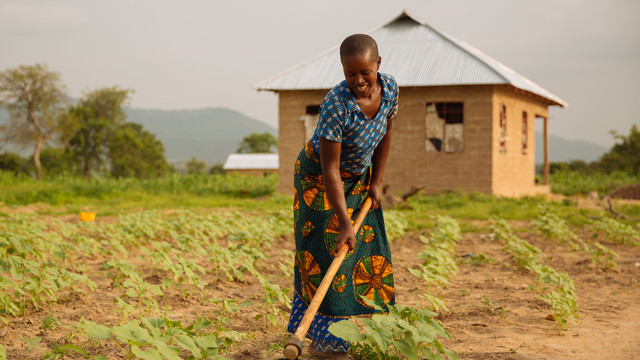4th International Conference on Community-Based Adaptation (CBA4)
The 4th International Conference on Community-Based Adaptation (CBA4) to climate change took place in February 2010 in Dar Es Salaam, Tanzania.

Many residents of Dar es Salaam live in informal settlements and are vulnerable to a wide range of climate threats, including sea-level rise and coastal erosion and flooding (Photo: Diana Mitlin/IIED)
The conference brought together stakeholders and practitioners from across the developing world – and particularly Africa – to share and discuss knowledge about community-based adaptation (CBA) planning and practice.
Conference highlights
Speaking at the conference opening, Louise Chamberlain, of the United Nations Development Programme (UNDP), emphasised the need to find linkages between national policies on climate adaptation and local level activities.
The programme (PDF) for the four-day event was structured to include a range of plenary and technical sessions on key subjects such as agriculture, water, and ecosystems, as well as cross-cutting issues such as funding, communicating about CBA and policy.
The first plenary session focused on agriculture and looked at projects on food security in Tanzania, southern Niger, Malawi, Ghana and northern Thailand. Participants stressed the need to better communicate with policymakers about future climatic changes so as to influence appropriate agricultural policies and adaptation strategies.
The final plenary session discussed the next steps for CBA. The conference agreed to develop the Global Initiative on Community-Based Adaptation (GICBA), a network designed to support CBA-related activities by generating and sharing relevant knowledge.
Richard Muyungi, acting director of environment, vice-president's office, Tanzania, said the conference had been an important event for Tanzania, and stressed the continued support of the Tanzanian government.
Field trips illustrate CBA activities
CBA recognises that communities already possess much of the knowledge and skills required to cope with climate change impacts. Communities can increase their resilience to climate stresses by using and building on their own knowledge and skills.
This is important in Africa, which is particularly vulnerable to climate change. To learn how communities are adapting to ecosystem changes, participants undertook field trips to a variety of locations across Tanzania.
One group of participants toured coastal villages affected by drought and water shortages. The group visited a successful community project that was shifting to sustainable mangrove harvesting after many agricultural sites had been submerged or abandoned.
Another group visited villages in the Mukuranga region. This area has seen an increase in temperatures and erratic rainfall in recent years, resulting in water shortages that have had a significant impact on maize and rice production. To adapt to the situation, some villages have shifted to cassava production, which is drought-resistant, and also diversified into poultry production.
Conference materials
Watch IIED senior associate Saleemul Huq previewing CBA4 below, or watch the video on IIED's YouTube channel.
Huq prepared a presentation on the outcomes of CBA4 and IIED published conference abstracts.
IIED also conducted a series of video interviews with participants, asking them what they believed was the most pressing issue related to community-based adaptation. You can view the videos on IIED's YouTube channel.
The field trips and the conference were jointly organised by IIED, Tanzania's Environment Protection Management Services (EPMS) and the Bangladesh Centre for Advanced Studies (BCAS).
- Find out more about the series of conferences in the community-based adaptation (CBA) conference archive
Partners
AfricaAdapt
FAO (Communications for Sustainable Development Initiative)
International Fund for Agricultural Development (IFAD)
The International Development Research Centre-Canada


